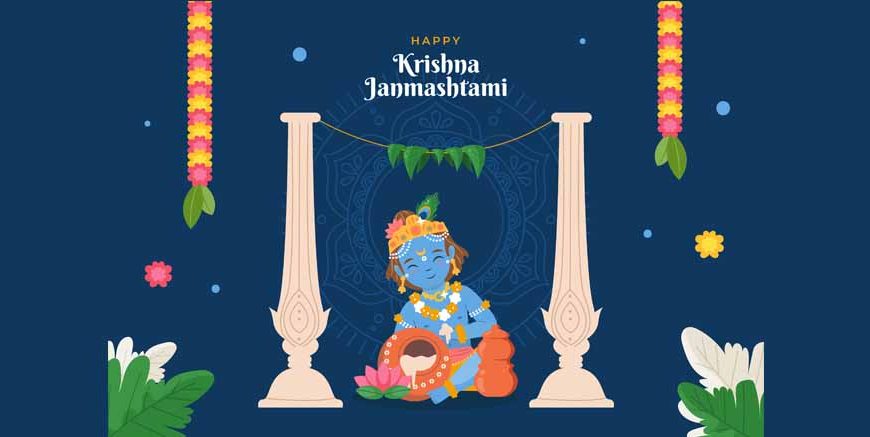Janmashtami is one of the most loved festivals in India, celebrating the birth of Lord Krishna. But beyond the lights, songs, and celebrations, Janmashtami holds beautiful lessons for children. Through the Krishna story for kids, we can show young minds the true meaning of kindness, compassion, and love for others.
Who is Little Krishna?
Little Krishna was born in Mathura and grew up in Vrindavan, filling everyone’s lives with joy and laughter. Janmashtami celebrates this special day with prayers, songs, and the famous “Dahi Handi,” where children recreate Krishna’s butter-loving mischief.
Krishna Janmashtami Story for Kids: Tales of Love and Laughter
Stories of Little Krishna stealing butter, playing the flute, and helping friends are timeless. These stories are not just fun but also full of values. When Krishna shared butter or protected villagers from harm, he showed children that true joy comes from sharing, caring, and being brave for the sake of others.
Learning Kindness and Compassion from Krishna
Through his acts, Krishna showed that kindness doesn’t have to be grand—it can be simple. Whether he was comforting a friend, feeding cows, or sharing food, he always thought of others first. These stories help children understand empathy, sharing, and caring for everyone around them.
What Young Minds Can Learn from Little Krishna Today
Krishna’s playful stories teach timeless values. Children learn generosity by sharing like Krishna, empathy by helping friends, and bravery by standing up for what’s right. These lessons help little ones grow into kind, confident, and caring individuals while still having fun.
Fun Activities for Kids on Krishna Janmashtami
Janmashtami is not just about listening to stories—it’s about celebrating kindness in action. Children can make little flutes, decorate matkis (clay pots), or dress up as Little Krishna for a day. These activities make the festival interactive and help kids remember its message of love and compassion.
Celebrating Krishna Jayanthi with Family and Friends
Families can make Janmashtami special by telling Krishna stories at bedtime, singing bhajans, and organizing small acts of kindness, like sharing food or toys. These celebrations teach children that festivals are about togetherness, love, and making others happy.
Conclusion
Janmashtami is more than just a celebration of Lord Krishna’s birth; it’s a heartfelt reminder of the power of kindness and compassion. Through the Krishna story for kids, little ones learn that true happiness comes from sharing, caring, and bringing joy to others, just like Little Krishna did through his playful yet loving nature. By introducing these values early on, we help children grow into not only intelligent learners but also kind-hearted individuals who spread warmth and positivity in the world around them. At EuroKids, our Nursery Program and Preschool Admission process focus on balanced learning that nurtures kindness, empathy, and emotional growth. Festivals like Janmashtami give children the chance to experience these values in real life, teaching them the joy of sharing, caring, and spreading love—just like Little Krishna. Interested in joining hands with us? Explore our Preschool Franchise in India and be part of shaping compassionate, value-driven future citizens.
Related Blogs:
- Krishna Janmashtami – Explains the meaning and traditions of Krishna Janmashtami in a child-friendly way, helping kids understand the cultural and spiritual importance of the festival.
- Krishna Janmashtami Activities for Preschool Students – Suggests fun, hands-on activities like crafts, songs, and games to help preschoolers learn about Lord Krishna while developing creativity and cultural understanding.
- Top Stories of Lord Krishna for Kids – Presents popular, simple stories about Lord Krishna’s childhood adventures that teach children values like kindness, courage, and friendship.
- Mahabharata Stories for Kids with Moral Lessons – Shares age-appropriate stories from the Mahabharata, offering moral lessons and timeless wisdom in a way kids can enjoy and understand.

















